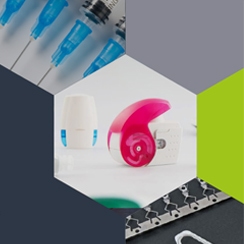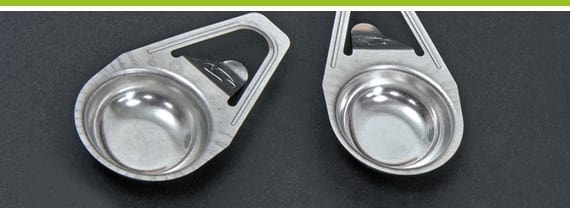The Proof is in Precision
Manufacturing for the medical industry needs a special kind of precision. The importance of efficiency, accuracy, and consistency are often measured on a microscopic level and need to be 100% accurate. One method that has revolutionised this sector is progression tooling. This advanced manufacturing technique offers benefits that significantly enhance the production process of medical devices. Progression tooling, also known as progressive die stamping, involves a series of sequenced operations on a strip of material. As the material moves through different stations within a die, each performs a specific operation, such as cutting, bending, or forming. This process is highly efficient and results in a perfectly finished part. Traditional manufacturing methods often require multiple setups and transfers of materials between different machines. In contrast, progression tooling integrates multiple operations into a single, streamlined process. This reduction in handling and machine setup time means faster production cycles and higher output.
Progression tooling is perfect for delivering high-precision components with consistent quality. The automated nature of the process ensures each part produced is identical, significantly reducing the risk of human error. This consistency is key to maintaining reliability and safety. Cost efficiency is another benefit of progression tooling. While the initial setup cost of progressive dies can be higher compared to traditional tooling methods, long-term savings are substantial. Integration of multiple operations into a single tool reduces labour costs and minimises the need for multiple pieces of equipment. Additionally, the high production speed and low scrap rate associated with progression tooling further enhances its economy.

Optimal Material Utilisation
This is essential in any manufacturing process to minimise waste and reduce cost. Progression tooling is highly efficient in this regard. The process is designed to maximise the use of the material strip, minimising scrap and ensuring more of the raw material is converted into finished product. This not only reduces material costs but also aligns with sustainability goals.
All in the Design
Medical device manufacturing often requires production of complex and intricate parts. Progression tooling offers the flexibility to handle a wide range of part geometries and sizes. The design of progressive dies can be customised to accommodate various shapes and dimensions, making it suitable for producing a diverse array of medical device components. This versatility is particularly advantageous in an industry where innovation and customisation are frequent. In a competitive market, reducing lead times is essential to meeting customer demands and staying ahead of competitors. The streamlined nature of progression tooling significantly cuts down on production time. The continuous flow of material through the die eliminates delays caused by multiple setups and transfers, ensuring parts are produced quickly and efficiently. This quick turnaround is invaluable in the medical device industry, where time-to-market can be critical.
High Speed Doesn’t Mean Quality Reduction.
Maintaining rigorous quality control standards is a cornerstone of medical device manufacturing. Progression tooling facilitates robust quality control processes. The integration of automated inspection systems within the tooling setup allows for real-time monitoring and inspection of parts during production. This immediate feedback enables prompt detection and correction of any defects, ensuring only parts meeting the highest quality standards proceed to the next stage of production.

Scalability
This is a key consideration. As demand for medical devices grows, manufacturers must be able to scale production efficiently. Progression tooling is inherently scalable, allowing for increased production volumes without significant changes to the existing setup. This scalability ensures manufacturers can respond effectively to market demands and maintain a competitive edge. Progression tooling is a game-changer, offering a multitude of benefits that enhance efficiency, precision, and cost-effectiveness. Its ability to integrate multiple operations into a single process streamlines production, reduces lead times, and ensures consistent quality. As the demand for high-quality medical devices continues to rise, progression tooling provides manufacturers with the ability to meet stringent industry standards and deliver innovative solutions to the market. The medical device industry lives by precision, reliability, and efficiency. Progression tooling stands out as a cornerstone technology that not only meets but exceeds the stringent demands of this sector. Embracing progression tooling is not just a step forward in manufacturing—it is a giant leap towards the future of medicine.
